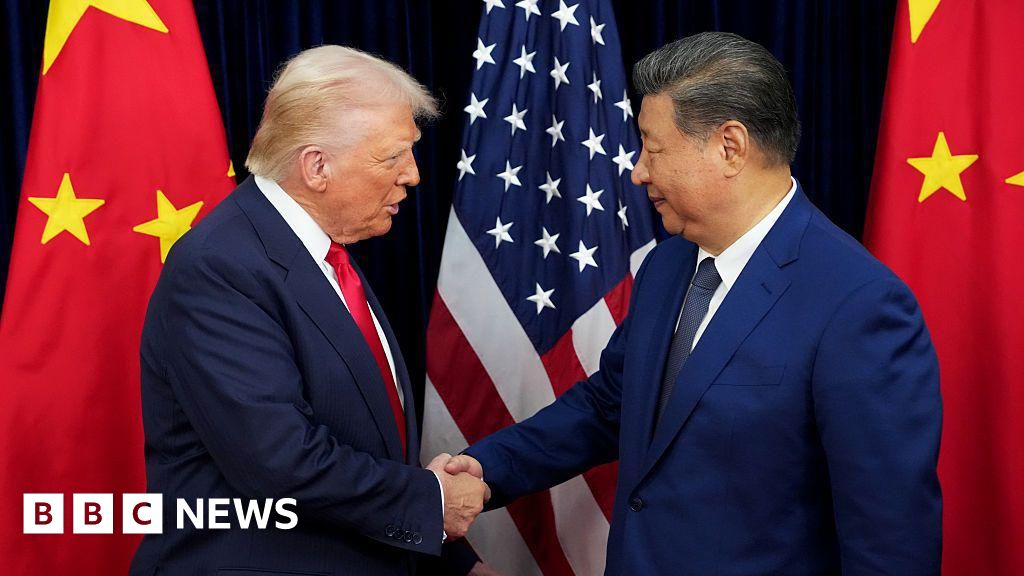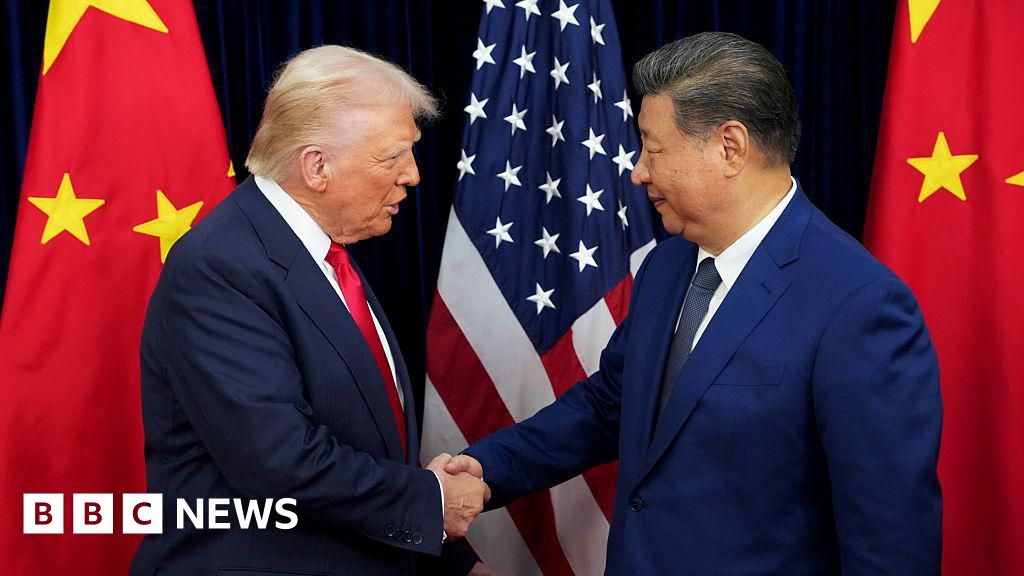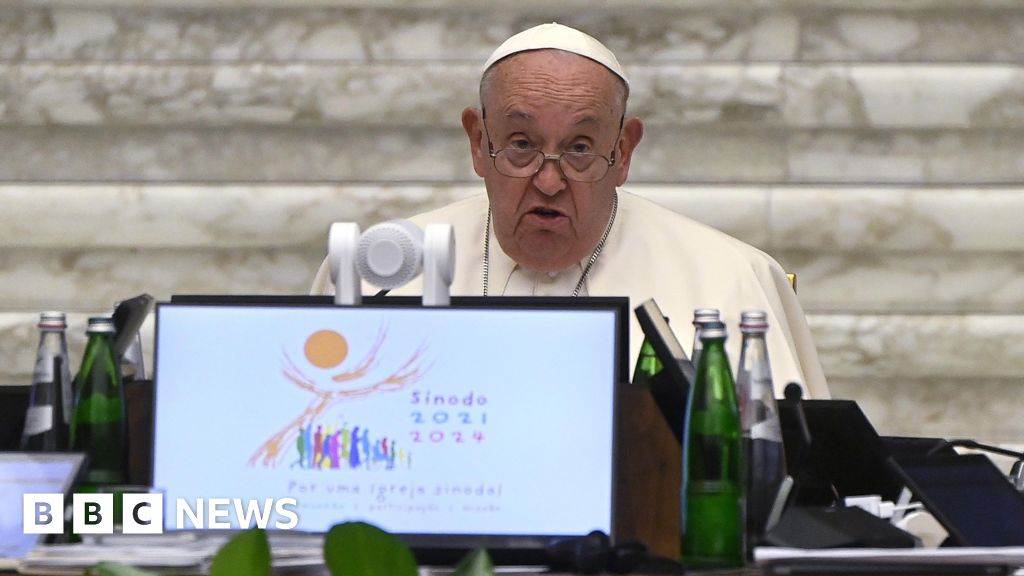
China will begin easing an export ban on automotive computer chips vital to production of cars across the world as part of a trade deal struck between the US and China, the White House has said.
The White House confirmed details of the deal in a new fact sheet after Xi Jinping and Donald Trump met in South Korea this week.
The nations also reached agreements on US soybean exports, the supply of rare earth minerals, and the materials used in production of the drug fentanyl.
The deal de-escalates a trade war between the world’s two largest economies after Trump hit China with tariffs after he entered office this year, leading to rounds of retaliatory tariffs and global business uncertainty.
Much of what is in Saturday’s fact sheet was announced by Trump and other officials following the meeting between the two leaders.
Trump had described the talks, held in South Korea, as “amazing”, while Beijing had said they had reached a consensus to resolve “major trade issues” – but did not immediately release details of the deal.
Speaking on Sunday following the release of the fact sheet, Treasury Secretary Scott Bessent told CNN: “We don’t want to decouple from China… (But) they’ve shown themselves to be an unreliable partner.”
One of the issues addressed in the deal was the export of automotive computer chips. There had been concern that a lack of chips from Nexperia, which has production facilities in China, could create global supply chain issues.
Nexperia is a Chinese-owned company, but is based in the Netherlands. About 70% of Nexperia chips made in Europe are sent to China to be completed and re-exported to other countries.
The fact sheet states that China will “take appropriate measures to ensure the resumption of trade from Nexperia’s facilities in China, allowing production of critical legacy chips to flow to the rest of the world”.
It follows Beijing saying on Saturday that it was considering exempting some firms from the ban.
Last month, the likes of Volvo Cars and Volkswagen warned a chip shortage could lead to temporary shutdowns at their plants, and Jaguar Land Rover said the lack of chips posed a threat to their business.
On other key issues, Beijing will now pause export controls it brought in last month on rare earth minerals – vital in the production of cars, planes and weapons – for a year.
The White House also said it would lower tariffs brought in to curb the import of fentanyl into the US, with China agreeing to take “significant measures” to deal with the issue.
Fentanyl is a synthetic drug manufactured from a combination of chemicals, and while it is approved for medical use in the US, the powerful and highly-addictive substance has since become the main drug responsible for opioid overdose deaths in the US.
The chemicals used in its manufacturing, some of which have legitimate uses, are mostly sourced from China.
On soybeans, China has committed to buying 12 million tonnes of US soybeans in the last two months of 2025, and 25 million metric tonnes in each of the following three years – which is roughly the level they were previously at.
China’s decision to stop purchasing soybeans from the US earlier this year denied American farmers access to their largest export market.
In response, Trump revived a bailout for farmers which was in place during his first term in office.



